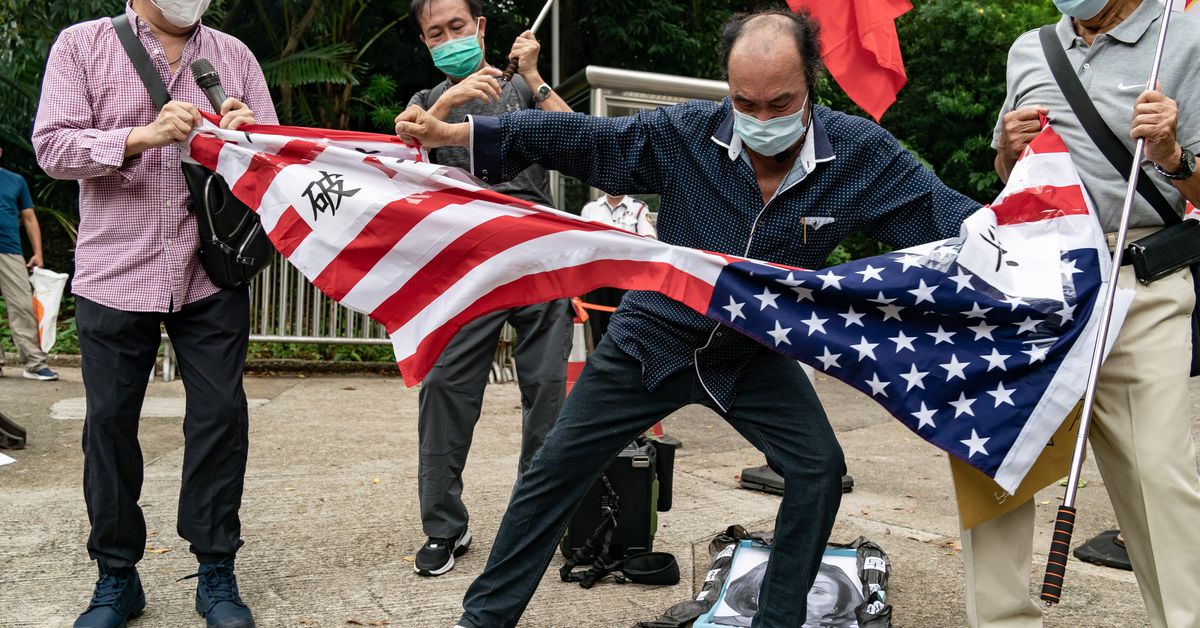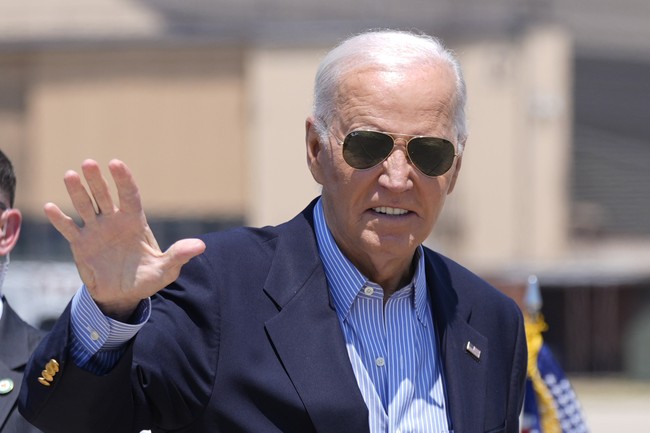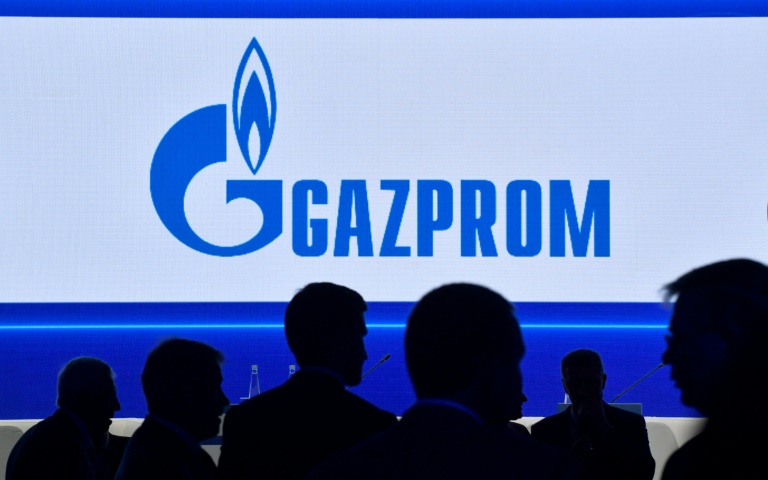China took several aggressive actions this weekend after Speaker of the House Nancy Pelosi visited Taiwan, including firing ballistic missiles in Taiwan’s vicinity and sanctioning Pelosi. While the incident may not lead to all-out war, it’s a further step in the dissolution of the relationship between the US and China — and gives China’s military the training it needs to execute future attacks.
Pelosi is the highest-ranking US official to visit Taiwan since former Speaker Newt Gingrich went in 1997. In the 25 years since, China has grown both its economy and military exponentially. Along with that has come the nation’s desire — and increased capability — to lay claim to Taiwan. Taiwan, which governs itself independently of Beijing and under current President Tsai Ing-wen, has increasingly chafed at Beijing’s tactics to “reunify” Taiwan with mainland China.
Now, the US is hoping to avoid a diplomatic and possibly military crisis with China. The relationship between the two superpowers has rapidly deteriorated in recent years over a plethora of problems like the abuse of Uyghur minorities in the Xinjiang Autonomous Region, crackdowns on pro-democracy movements in Hong Kong, increased coordination between the US and Taiwan under the Trump administration, and alleged espionage and hacking on the part of the Chinese government.
“There is much to object to in the Chinese behavior, but that said, there are many behaviors that the Chinese object to, that the various stakeholders in the US simply ignore and blow past, and perhaps do so at their peril,” Daniel Russel, vice president of international security and diplomacy at the Asia Institute told Vox.
Previous administrations practiced “strategic ambiguity”— seeking to reassure Taiwan without inflaming China. In May, Biden pledged that the US would go above and beyond the support it’s already provided for Ukraine should China invade Taiwan, though members of his administration including Defense Secretary Lloyd Austin insisted that Biden’s statement was in line with the One China policy — the official acknowledgement that the mainland is China and Beijing is the seat of power.
Now, China is conducting large-scale military exercises in the Taiwan Strait— reportedly firing 11 ballistic missiles in the island’s vicinity, Reuters reported Thursday. That’s the first time China has made such a move since 1996 — showing how much has changed since the last time the US and China faced off over Taiwan.
20 PLA aircraft (SU-30*10, J-16*4, J-11*4, Y-8 ASW and Y-20 Aerial Refueling) and 14 vessels conducted an air-sea operation on the surrounding area of R.O.C on August 6, 2022. Please check our official website for more information: https://t.co/Tj6C1y0WHR pic.twitter.com/apjMe6IYMn
— 國防部 Ministry of National Defense, R.O.C. (@MoNDefense) August 6, 2022
“[The Chinese military is] probably not even halfway through the various things that they have in mind,” Daniel Russel, vice president of international security and diplomacy at the Asia Institute told Vox. “I think it’s pretty clear that the Chinese are in the acting out phase, the retaliatory phase, as they characterize it, and they have no interest in being calmed down until they have completed this circuit of punitive measures.”
The ultimate goal, at least when it comes to Taiwan is not necessarily a military takeover — China is not yet capable of that, Russel said. Instead, every crisis is calibrated “to force Taiwan, essentially, to its knees, to force the leadership of Taiwan to capitulate to the mainland’s terms for political negotiation.”
China’s military might has grown considerably in the past three decades
China has become more aggressive in defending what it sees as its interests in several arenas, including militarily in the South China Sea and with hostile crackdowns against pro-democracy protests in Hong Kong — both of which represent a threat to Taiwan’s democratic system.
China claimed sovereignty over the South China Sea and several islands in the vicinity, including Taiwan, in 1992’s Law on the Territorial Sea. That document also outlines the conditions under which military vessels and aircraft may enter into Chinese territory. Now, 30 years later, the People’s Liberation Army Navy (PLAN) has the means to enforce is sovereignty, and has been doing so with increasingly provocative maritime action including militarizing islands in the South China Sea
The US maintains that it has significant economic and security interests in the region and routinely conducts freedom of navigation and other exercises there, utilizing military sea and airpower to maintain the freedom of maritime areas. The US also sells weapons systems to Taiwan for defensive purposes per the 1979 Taiwan Relations Act, but those capabilities just aren’t in proportion to what China’s military has produced over the past 25 years. Furthermore, as recently as last year both US and Taiwanese stakeholders expressed concern that Taiwan’s military suffered from low morale and readiness among reservists and conscripts. That’s due in part to a lack of funding and a disorganized reserve system, as well as the belief of many Taiwanese that the US will support their military should any major attack occur, according to a Wall Street Journal investigation from last October.
China’s military growth is currently based on civil-military integration, which includes major investments in tech research and development and dual-purpose technology which aims to strengthen both the military and economy. That has resulted in significant weapons systems developments including the so-called “carrier killer” missile which can reportedly attack ships as large as contemporary US aircraft carriers, thus potentially deterring US warships from operating in what China considers its own territory.
The situation is a far cry from the 1995-1996 crisis in the Taiwan Strait, when a visit by Lee Teng-Hui, who would become Taiwan’s first democratically-elected president in 1996, to his alma mater Cornell University, sparked tensions between the US and China. China then deployed missiles and conducted military exercises in Taiwan’s vicinity, but the US was able to fend off those provocations by sending two aircraft carrier groups transiting through the Taiwan Strait.
Since suffering that humiliation, the Chinese government has pushed to create a military capable of facing — and beating — the US in a confrontation. What the People’s Liberation Army is missing is experience in the war zone, Russel told Vox. “They’re practicing, and that is not a good thing for us,” he said. “And it’s the sort of thing that directly remedies the biggest shortcoming of the People’s Liberation Army — namely, that unlike the US military, they haven’t spent the last 50 years at war.” Therefore, Pelosi’s visit was the perfect excuse to gain battlefield experience in the ideal context.
“The Chinese are taking advantage of what they are billing as a provocation,” Russel said. “They’re taking advantage of this to practice things that, in normal circumstances, would be so provocative that they didn’t dare rehearse. So these are joint exercises that are, in effect, dry runs for a military action against Taiwan — whether it’s a blockade, or an attack of another sort.”
Is there a diplomatic solution to the crisis?
There’s no reason to believe that China will launch an all-out amphibious assault on Taiwan at this point, but that doesn’t mean that there aren’t currently serious risks.
“In terms of lowering the tension, rule number one: Don’t do anything that makes things worse,” Russel said. But that’s easier said than done when diplomatic relationships that would normally serve to diffuse such tensions are frayed as they are now. The White House summoned Chinese ambassador Qin Gang on Friday to rebuke him for the military exercises; now, China’s has called of discussions on other critical topics and its military officials are not responding to the Pentagon’s overtures — increasing the potential for accidents and misinterpretations to spiral out of control.
“You’ve got a lot of US, PRC, and Taiwan assets moving around, in a relatively confined space. In the past there have been accidents where, maybe overzealous or inexperienced Chinese pilots have collided with US planes — even much more recently there have been many more examples of very risky maneuvers by Chinese pilots and Chinese ship captains,” Russel said. “So that danger is a real one, and what makes it dangerous is not that a US plane and a Chinese plane could get in an accident, but that US and China don’t have the mechanisms in place — the relationships, the dialogues, et cetera — that serve to block escalation, to prevent an incident from becoming a crisis, and a crisis leading to conflict.”
A complicating factor seems to be Chinese President Xi Jinping’s need to show force to shore up his power ahead of China’s 20th Party Congress later this year, where major leadership changes will be announced. Michael Raska, an assistant professor at Nanyang Technological University’s S. Rajaratnam School of International Studies in Singapore, told Bloomberg that China’s exercises in the Taiwan Strait are “a show of force that solidifies Xi’s political power at home and paves way for his third-term re-election.”
It’s also a distraction from the fact that “things are going to hell in a hand basket in Xi Jinping’s China,” Russel said. Between limits on technology use, overbearing social control, and major economic issues like a severe housing crisis, Chinese citizens are ridiculing the government’s policies on the social network Weibo — giving Xi every reason to dial up the pressure on Taiwan and the US, Russel said.
China also announced that it would not continue talks with US officials on climate change, one area where the US and China had willingly cooperated until Pelosi’s trip. “Each time there is an event that makes tensions between Washington and Beijing surge, as Nancy Pelosi‘s visit has done, [it] leaves the relationship, when it does calm down, that much worse,” Russel said, noting that Taiwan is not the only issue over which the US and China must negotiate.
“It makes the prospects for of any kind of real progress — not negotiating the fate of Taiwan but the two major powers on planet Earth learning how to share the globe without blowing it up — makes that mission all the more difficult.”





















Discussion about this post